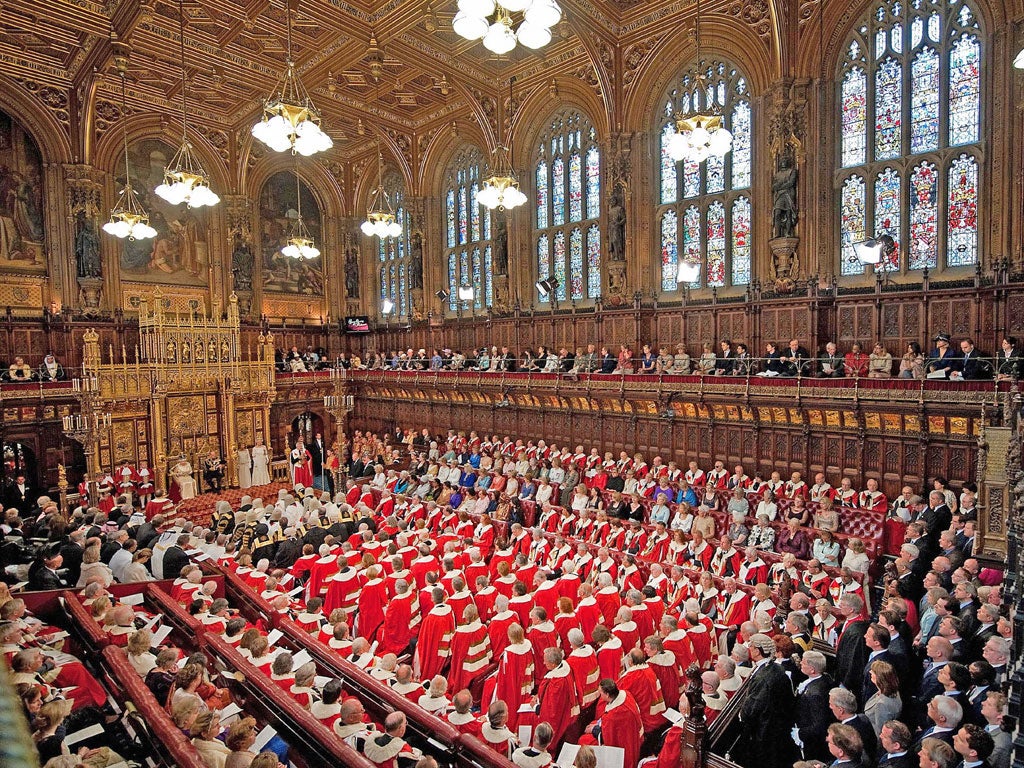Crisis for Clegg as Cameron hints at referendum on Lords reform
Deputy leader accused of 'dodging' critical issue by committee he set up to make dream come true

Nick Clegg's plans for an elected House of Lords have run into problems on several fronts as David Cameron left the door open to a controversial referendum and opposition mounted among MPs and peers.
The Deputy Prime Minister opposes a referendum on proposals for 80 per cent of the second chamber to be elected. But a joint committee of MPs and peers he set up to produce a blueprint for reform came out in favour of the public having the final say. Mr Cameron, while saying he personally opposed a referendum, did not rule one out – a move seen as an invitation to Tory MPs to demand a public vote when Mr Clegg's Bill is debated by the Commons.
On Sunday, Mr Clegg argued that a referendum was not needed because all three main parties pledged Lords reform in their 2010 election manifesto. Yesterday Mr Cameron told BBC Radio 4: "My view is that you shouldn't rule it out." And he said Lords reform would not happen unless the parties "work together, rationally, reasonably, sensibly".
But there was little sign yesterday of the splits between and within them being resolved. The joint committee ended up disagreeing among themselves. Twelve of its 26 members issued an alternative blueprint, accusing Mr Clegg of not doing a proper job in his draft Bill because he dodged the critical issue of how a mainly elected Lords would affect the Commons. They warned that elected peers would challenge the supremacy of MPs and cause "gridlock" between the two Houses.
Ministers were also embroiled in a row after refusing to reveal how much the revamped Lords might cost. It emerged that the proposed elected peers could earn about £900,000 during their 15-year, non-renewable term – about £60,000 a year, slightly lower than the £65,000 annual salary of an MP. Unofficial estimates put the annual cost of running the new chamber at £177m in its first year and £433m a year by 2015-20 – not including the elections. Mark Harper, the Cabinet Office Minister, dismissed the estimates as completely speculative. Under the joint committee's blueprint for a 450-member second chamber, a third of them would be replaced every five years under a single transferable vote system allowing people to back a party or an individual candidate.
Lord (Ivor) Richard, a former Labour Leader of the Lords, who chaired the joint committee, said it agreed that such important constitutional change should be put to the people in a referendum. "It is not a question of tinkering with the electoral system," he said. Baroness (Gillian) Shephard, a former Tory Cabinet minister, was scathing in her criticism of Mr Clegg, saying he did not "do the work", "think through" his proposals and "deal with the vast constitutional implications" before bringing forward legislation.
Peer pressure: How Lords may look
* Current 800-strong House to be replaced between 2015-2025 by a 450-strong second chamber
* 360 peers (80 per cent) elected for a single, 15-year non-renewable term by the single transferable vote system used in New South Wales, Australia, which allows voters to choose individual candidates or a party
* 90 peers (20 per cent) to be appointed by an independent Appointments Commission, which would give priority to people without recent party affiliation and from the "major faiths"
* Peers would receive a salary of £60,000 a year instead of the current £300-a-day allowance for turning up
* Peers who did not attend the Lords on two-thirds of the sitting days in the 2011-12 would be the first to lose their seats. The others would become "transitional members" and retain their seats until 2025, when the final tranche of elected peers chosen
* Peers would be elected for an area the size of six or eight Commons constituencies
Subscribe to Independent Premium to bookmark this article
Want to bookmark your favourite articles and stories to read or reference later? Start your Independent Premium subscription today.

Join our commenting forum
Join thought-provoking conversations, follow other Independent readers and see their replies